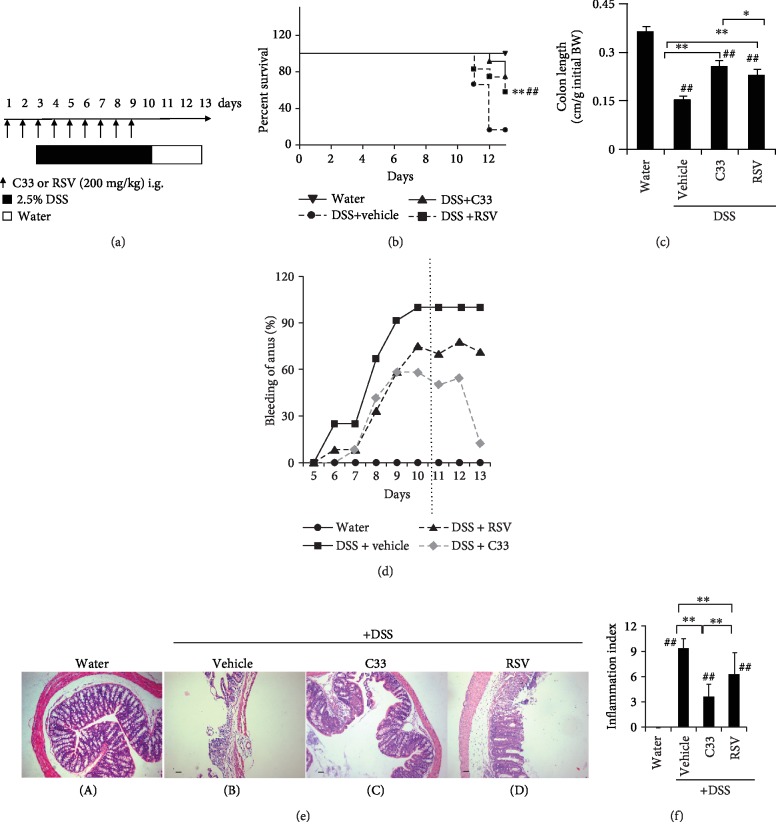Figure 3.
C33 promotes recovery from DSS-induced colitis in WT mice. (a) Experimental protocol for C33 and RSV treatment in DSS-induced colitis. WT and Nrf2−/− mice were treated with C33 (200 mg/kg i.g.), RSV (200 mg/kg i.g.), or vehicle (10% ethanol) daily. Two days later, while the mice continued with the daily RSV or C33, they were also given normal drinking water or water containing 2.5% DSS for 7 days. After cessation of DSS exposure and RSV or C33 treatment, mice were given water for further three days. (b) Survival rates of the mice. ∗∗p < 0.01 vs. DSS+vehicle group; ##p < 0.01 vs. DSS+RSV group. (c) Colon length at the end of experiments represented as a ratio (cm/g) relative to the weight of mice at the start of the experiment (n = 3 (water); 3 (vehicle); 9 (C33); 7 (RSV)). (d) The percentage of the mice with anal bleeding during the experiment. (e) Representative images of H&E staining of colon sections from mice in (a) (scale bar, 50 μm; original magnification, ×40). Water (A), mice on normal drinking water without any treatment. +DSS (B–D), mice on drinking water containing 2.5% DSS. (f) Inflammation index of the mice treated as in (a). Values are mean ± SD (n = 3–9). ∗p < 0.05, ∗∗p < 0.01, difference between the colitis WT mice with different treatments. ##p < 0.01, difference between the WT mice on normal drinking water without any treatment and the colitis WT mice with different treatments.

